90% of flowers and plants should be responsibly produced and traded by 2020. With that ambition in mind, the Floriculture Sustainability Initiative (FSI) was established in 2013. "Back then, sustainability wasn't clearly defined, there was pressure from the market and it was difficult to pinpoint the value of certifications in the industry as they were not benchmarked at the time", Jeroen Oudheusden, Executive Officer of FSI, tells us. The mission for the newly-formed platform was to increase transparency and traceability in the chain, to get more "facts on the table" and to stimulate members to work on sustainability issues. And of course to make responsibly produced products the norm for the industry.
Navigating the certification jungle
"When we started, we identified between 40 and 50 international labels," Jeroen says. "We came up with a very slick system for that, the Equivalency Tool, which assessed these standards against compliance with international legislation for social and environmental practice. The certification schemes in our Basket of Standards, which currently contains 15 labels, match those criteria."
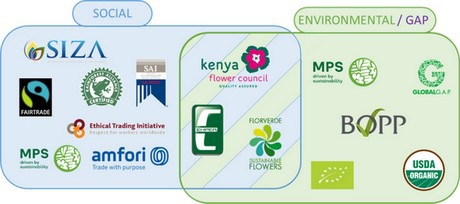
15 labels... isn't that a bit much? Jeroen explains having multiple standards allows for specialization and can bring focus to relevant topics. Some of the standards focus on ethical supply chains (like Fairtrade) and others take into account purely environmental or regional characteristics. "For instance, Florverde in Colombia is tailored to the specific needs of Latin American growers, and the situation in Colombia is different than in Kenya, the Netherlands or Ethiopia. So it's important that there are multiple standards that compete more or less, documenting and stimulating good practice in specific countries."
Including the small growers
The Basket system supports equivalency between standards so that growers can match market requirements and don't need multiple labels for each country they export to. Then there's the opportunity for growers to use record keeping as an important means to assess and compare themselves to what's going on in the industry. Jeroen expects this will lead to more transparency and responsible practice, which will also make the industry more sustainable.
But what about smaller growers, who are not exactly keen on investing in expensive labels at all? In the Netherlands, there's been some backlash against the decision to make environmental certification mandatory by the end of 2021, particularly from smaller growers. Jeroen points out that in some countries, smaller growers have successfully tackled this through group certification already.
"That could also happen in the Netherlands", Jeroen says. "Because sustainability is also about not excluding those parties. Certification shouldn't lead to that, because exactly those smaller, seasonal growers, or part-time growers, have a great added value. So you need to look at how to include that group in the movement toward greater sustainability." All stakeholders in the certification process have a role to play here, from auction and trade associations to certification schemes like MPS and GLOBALG.A.P., who should make it possible for smaller growers to get certified", Jeroen says.
 According to Juan Carlos Isaza, GLOBALG.A.P. Technical Expert Floriculture, the certification organization is already revising its standard for flowers and ornamentals to make it simpler for the producer while still making it more relevant in its environmental dimension.
According to Juan Carlos Isaza, GLOBALG.A.P. Technical Expert Floriculture, the certification organization is already revising its standard for flowers and ornamentals to make it simpler for the producer while still making it more relevant in its environmental dimension.
“Among the aspects included in the revision is the proposal to update the environmental requirements of the GLOBALG.A.P. Flower and Ornamentals standard, building on a tradition of more than 16 years promoting good agricultural practices and record keeping among flower and ornamental producers", he says. "The implementation of good practices has contributed to better decision-making by producers based on risks and technical knowledge. An integral element of these good practices has been to keep records of input consumption, specifically plant protection products (PPP), fertilizers, water and energy. A Focus Group of stakeholders in the sector is guiding GLOBALG.A.P. in the revision of the standard. One of the tasks is to identify how producers and GLOBALG.A.P. can make better use of these metrics with the purpose of supporting the producer to improve its sustainability performance. Another task is to ensure that the standard is simpler, inclusive to small sized producers while still keeping its relevance as the most extended worldwide farm assurance system.”
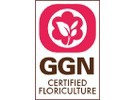 These improvements of the standard will as well be the base and a great benefit for the GGN label, the consumer label by GLOBALG.A.P. The GGN label stands for certified, responsible farming and transparency. It is designed to help guide consumers in their day-to-day grocery shopping across different product categories like flowers and ornamentals, aquaculture and fruit and vegetables. "The label promotes safe and responsible farming that benefits farmers, retailers, and consumers around the globe, thus supporting worldwide sustainable development for the good of future generations and our planet", the GGN label team clarifies. Transparency is at the heart of the label: by typing the 13 digits GLOBALG.A.P. number (GGN) present on GGN labelled product packs on www.ggn.org, consumers can discover where their food and plants come from and how they have been farmed. Stemming from GLOBALG.A.P. experience of over a decade in the floriculture sector, more than 250 farms profiles / from 18 different countries are now to be found on www.ggn.org and more will be added given growing traction of the initiative in the sector.
These improvements of the standard will as well be the base and a great benefit for the GGN label, the consumer label by GLOBALG.A.P. The GGN label stands for certified, responsible farming and transparency. It is designed to help guide consumers in their day-to-day grocery shopping across different product categories like flowers and ornamentals, aquaculture and fruit and vegetables. "The label promotes safe and responsible farming that benefits farmers, retailers, and consumers around the globe, thus supporting worldwide sustainable development for the good of future generations and our planet", the GGN label team clarifies. Transparency is at the heart of the label: by typing the 13 digits GLOBALG.A.P. number (GGN) present on GGN labelled product packs on www.ggn.org, consumers can discover where their food and plants come from and how they have been farmed. Stemming from GLOBALG.A.P. experience of over a decade in the floriculture sector, more than 250 farms profiles / from 18 different countries are now to be found on www.ggn.org and more will be added given growing traction of the initiative in the sector.
Moving forward, validated record keeping will simply become essential, even for the smallest of growers, Jeroen believes. "Because even being a smaller grower, your beautiful flower will end up in a bouquet from a large florist." If that bouquet is tested by an environmental organization and they find traces of banned crop protection agents, it will affect the whole industry, illustrating how the smallest link in the chain is as important as the biggest. As Jeroen puts it: "Certification is not the goal - the goal is to make the chain more sustainable, and certification can be a means to this end."
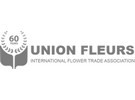 Richard Fox, President of Union Fleurs, agrees. The International Flower Trade Association has been actively involved in the start-up and development of FSI since 2011-2012 as a founding member and key partner. Richard has been involved at the level of the FSI Board since 2013. Union Fleurs is also closely related to the operational running of FSI as the FSI secretariat is hosted in its office premises in Brussels.
Richard Fox, President of Union Fleurs, agrees. The International Flower Trade Association has been actively involved in the start-up and development of FSI since 2011-2012 as a founding member and key partner. Richard has been involved at the level of the FSI Board since 2013. Union Fleurs is also closely related to the operational running of FSI as the FSI secretariat is hosted in its office premises in Brussels.
"Being able to demonstrate sustainability credentials has now really become a ‘license to operate’ on the market; it is no longer a matter of choice", Richard says. "More specifically, through the benchmarking process undertaken by FSI via its Equivalency tool and Basket of Standards, it has been possible to identify worldwide sustainable sources of flowers and plants worldwide in a transparent and comparable manner. Southern hemisphere growers have led the way on this and it is now for the northern hemisphere growers who contribute substantially to the volume of flowers traded worldwide to establish their sustainability credentials to make it possible to achieve the 90% goal promoted by all FSI members."
People's planet
When talking about sustainability and certifications in the flower industry, people tend to think of the environment. But other aspects also play a part here. Non-profit organization Hivos, one of the members of FSI, focuses on the people working in the flower chain.
"We want to highlight human rights (violations), like sexual harassment, safety, wages, freedom of association, water use, overtime and gender equality," Evelien Vleeshouwers, Communication Officer at Hivos, tells us. "That's why, together with the True Price/Impact Institute, we created ‘CSR Africa’. Through CSR Africa, a flower company can have a social impact scan made which measures how a company scores on these seven points, and gives recommendations for improvement." Hivos also has the Women@Work Campaign, which focuses on better work conditions for women in the flower industry in eastern and southern Africa.
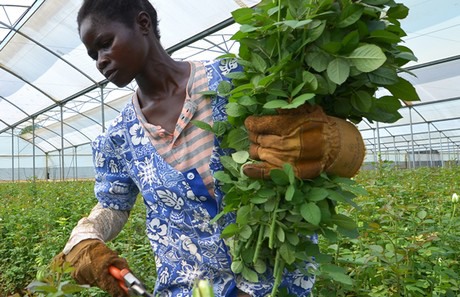
Evelien says that another issue in the flower industry are the low wages. "Sometimes even so low that they're below the World Poverty Line of 1.90 USD a day. That's why we're pleased with the International Responsible Business Conduct Agreement for the floricultural sector that was signed in July, also by Hivos. This stipulates that companies under the IRBC agreement should pay at least the World Poverty Line of 1.90 USD starting from April 2020. That's a good start, but it's only the beginning. Ultimately, all people should get a living wage: a wage that's high enough to provide for one's basic needs (food, water, housing, clothing, medical care, transport, education and a small buffer). With the campaign Small Change, Big Deal, we encourage supermarkets in the Netherlands to tackle this issue. We hope the first 'living wage roses' are in the supermarkets next year."
Flowers in flight
Cut flowers are transported all over the world, many of them by plane. While FSI looks as much as possible at the footprint of the chain as a whole, the certifications in the basket still focus mostly on the grower. Some pieces of the puzzle are already falling into place. "For instance, FlowerWatch, one of the FSI members, already certifies the cold chains", Jeroen points out. "Kuehne + Nagel and DSV Panalpina are also working to make their chains more sustainable, and investments are being made in transport by sea. And sometimes, certification isn't even the way. If you have a really good, data-driven chain, the vase life will prove the point."
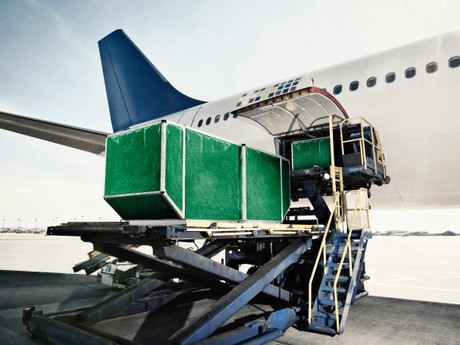
Although FSI doesn't specifically focus on logistics, that doesn't mean the industry isn't interested in making a difference here as well. The Holland Flower Alliance, for instance, has as its mission to facilitate logistics innovation to further optimize the international ornamental chain and make it more sustainable. Program manager Eline van den Berg: "At the moment, we're working with partners in the chain to implement a new packaging concept we developed, which allows us to improve our load factor and to limit product loss. With this packaging, we're also hoping for more standardization, because right now more than 300 different types of boxes are used in the chain between Kenya and the Netherlands".
HFA is also working on an initiative to exchange data between chain partners. "That way, we can track and trace the flower box in the chain, which will directly contribute to optimizing the various company procedures", Eline says. "We also believe that better cooperation between chain partners will contribute to more sustainability in the chain."
At the moment, KLM Cargo is the main air freight company that's involved with the Holland Flower Alliance. "We also work closely with various freight forwarders. Our ambition is for all the initiatives we develop to be scalable to the whole industry, so other parties are also welcome there", Eline adds. "We're currently in talks with FSI to explore where, in future, we could do more for each other."
Sustainable retail
All retailers and trading companies that are members of FSI, are also independently assessed on their sustainability. Conversely, the benchmarking of standards by FSI is a useful tool for retailers: they don't have to know what every single label means; as long as it's in the basket, it's above board. This should lead to a situation where any flowers or plants a consumer buys from, say, a garden center or supermarket, should be responsibly produced.
One of those retailers is IKEA - the Swedish furniture giant is a member of FSI. According to a spokesperson, the company expects that the goal of having 90% of flowers & plants responsibly produced and traded by 2020 will be reached. "Furthermore, we demand sustainability compliance at all our growers, also outside Europe, by securing the high standards in our own code of conduct, IWAY (IKEA Way on Purchasing Products, Materials and Services)."
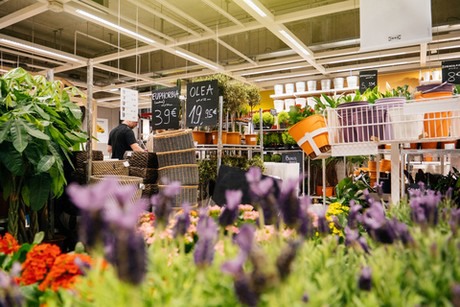
Through their sustainability strategy People & Planet Positive, IKEA intends to transform the business, the industries in the value chain and life at home for people all across the world. "We want to have a positive impact on people and the planet. We want to reduce our climate footprint and become climate positive, become a circular business and enable more of the many to live a healthy and sustainable life at home. That is why we in our Green Plants purchasing have a high focus on reducing environmental impact particularly from CO2 footprint, energy & water consumption and chemicals and why we want to strengthen the material recycling of plant pots."
In order to achieve this goal, IKEA has formulated requirements for its growers, including IWAY, the company's code of conduct based on the values and principles of human rights, environmental protection, legal compliance and worker safety. "For growers in certain European countries we secure the compliance by demanding MPS A/B, MPS GAP and MPS SQ certificates." Furthermore, every year the company collects environmental impact and implements goals and actions to reduce impacts, for water, energy and waste. "We are working on an initiative called Greener Plant project in which we are developing a tool to measure the environmental impact of our entire supply chain, which internally should support us by choosing items and suppliers – and support our suppliers to become more sustainable."
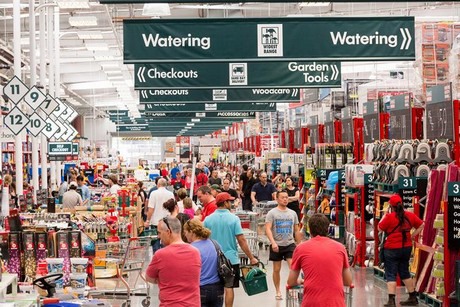
Meanwhile, 'Down Under' sustainability is also high on the agenda. Bunnings, one of the biggest garden supplies stores in Australia, made the decision to stop selling neonicotinoids as part of their garden care offer. "At this time we informed our suppliers that we will no longer accept plants that have been treated with neonicotinoids after the phase-out period (December 2020)", says Robert Chin, Compliance Manager Bio-Security and Nursery Standards at Bunnings. "A small number of plants may still be treated if required by biosecurity laws.
"All plants on offer at Bunnings are grown by local suppliers with most accredited under the Nursery Industries BMP program NIASA, which has sustainability as one of its key drivers. We work closely with suppliers to reduce unnecessary packaging and promote Best Management use of chemicals. Our distribution system enables suppliers to drop plants to a central point to reduce unnecessary transport.
"We will continue to work closely with growers to help and support sustainable initiatives and further develop several pilot programs in regards to pot recycling and plant labelling".
2025 and beyond
2020 - it seems to be a magical year, where everything will come together in attaining greater sustainability. But what happens after that?
"2020 is being seen as a key momentum for the overall sustainability journey of the ornamental industry, in great part thanks to the FSI 2020 ‘rendez-vous’, but we would rather look at it as a useful stock-taking moment in a much wider and deepening process", as Richard of Union Fleurs puts it. Society at large and Governments are also becoming much more demanding in the area of sustainability performance and will more and more require that the private sector deals with challenges in this area in a responsible and transparent manner. "It is essential for the ornamental industry to anticipate as much as possible such developments to remain ‘ahead of the game' and to keep stimulating in its own way the enshrinement of sustainability performance throughout every step of the value chain, from origin to consumers. In that context, there is already a lot of strategic thinking that goes into what the industry will look to achieve in the following 5 years up to 2025. This will definitely include additional indicators on the protection of the environment and better environmental practices. But also a more specific agenda focused on proactively addressing concerns about CO2 emissions, plastics, water management and other factors that potentially have a negative impact on the environment."
Secretary General of Union Fleurs, Sylvie Mamias, adds that the organization, given its worldwide cross-sectional supply chain profile, will continue to support and promote initiatives that lead to extending and consolidating sustainable practices throughout the industry, and not just those businesses that have signed up to FSI. "That also includes for example Union Fleurs’ key function as the representative organization interacting with Governments and international institutions on behalf of the international floriculture trade. The intelligence it is able to gather through these interactions and through its active presence in Brussels on any upcoming policy directions promoted by the EU institutions has for example led to its active support, on behalf of its membership and wider industry, to a voluntary sector-led project focused on the development of a Product Environmental Footprint methodology for cut flowers & pot plants."
This project, led together with Royal FloraHolland and Wageningen University, has just gained validation from the EU Commission and is expected to pave the way for a consistent, comparable and verifiable approach to the measurement of the environmental performance of flowers & pot plants as a product category and the Life-Cycle assessment of these products, which is expected to become the required norm going forward at both EU and international levels.
"The growing number of members see FSI as a useful network and instrument to take steps toward our goal, and we will continue to re-invent ourselves," Jeroen concludes. "We're now working on our strategy for 2025, which will be more focused on transparency, data, traceability, and more on the chain as a whole than on individual growers. That will make the industry more proactive and stronger. It should be the goal of everyone working in our industry to produce and trade 100% sustainable flowers and plants. Only then will we be able to provide a fair income for the many farmers' families, enhance our environment and remain top of mind of billions of consumers worldwide!"
